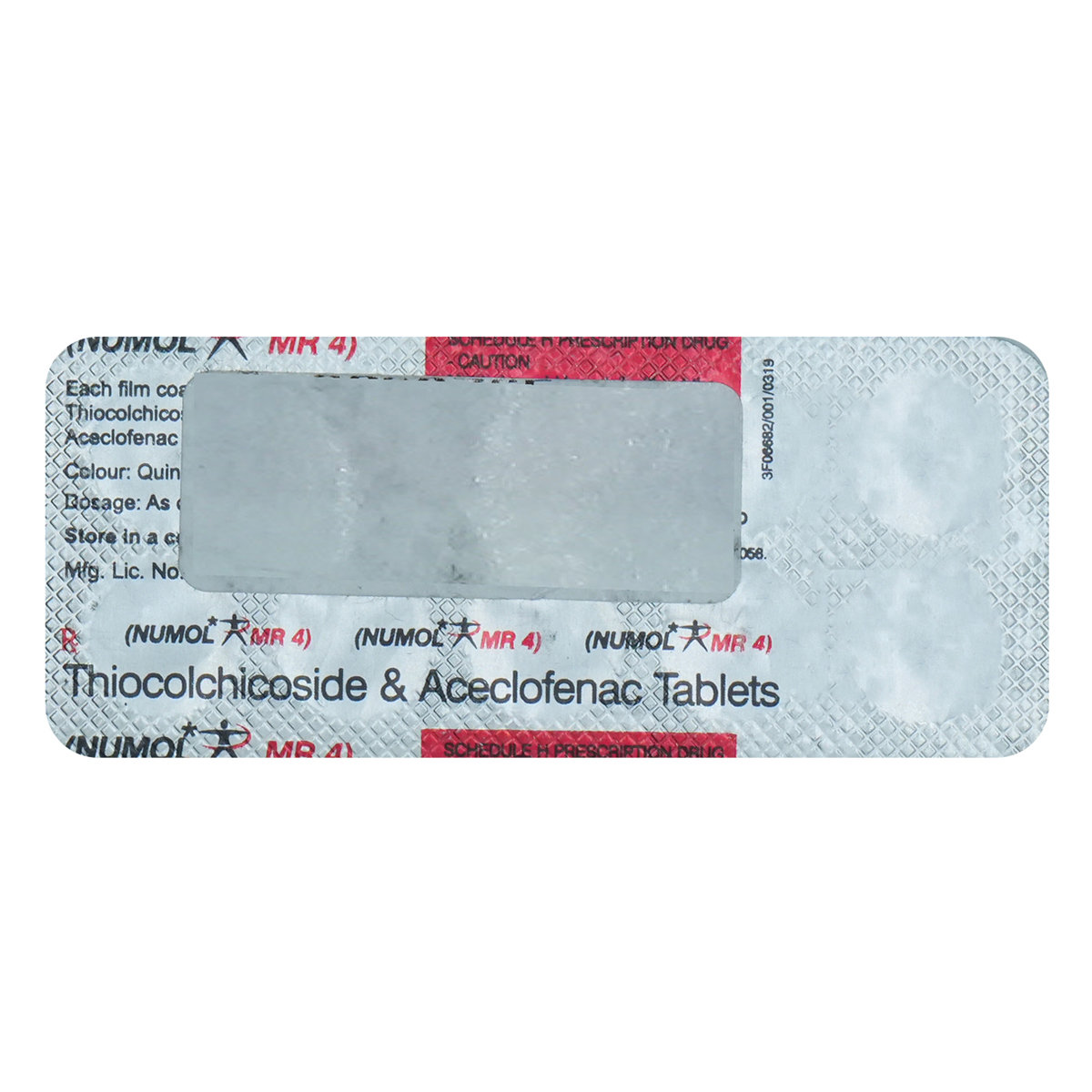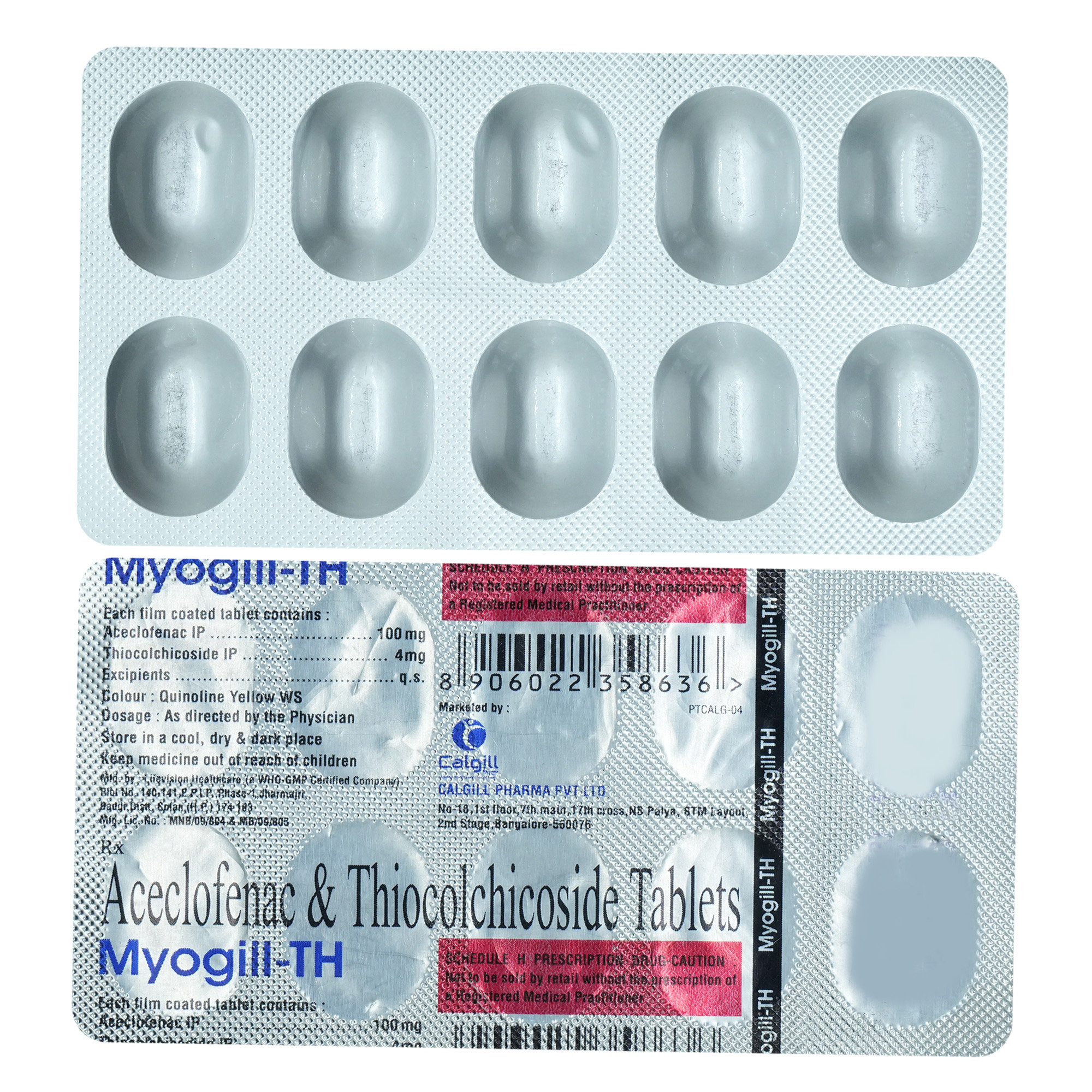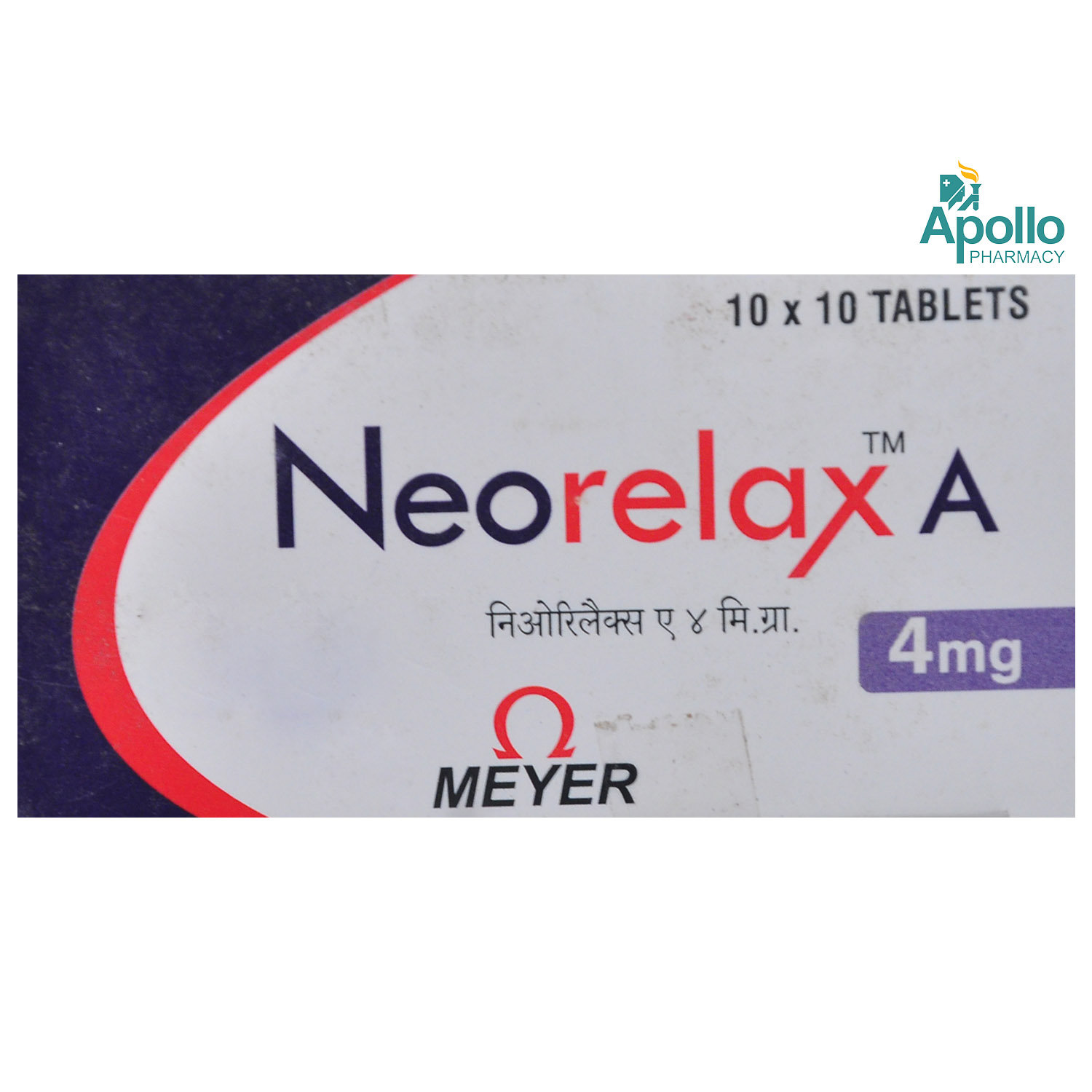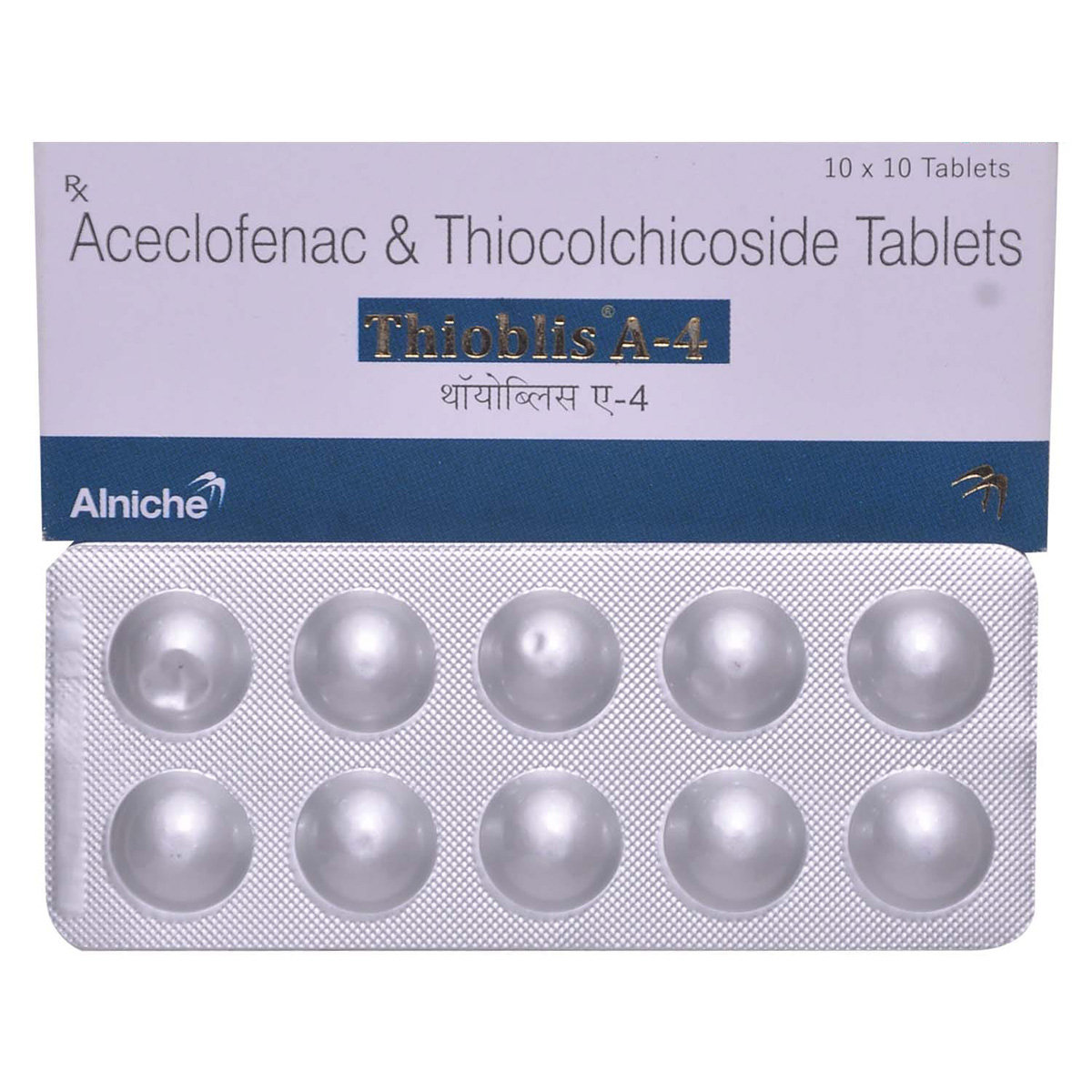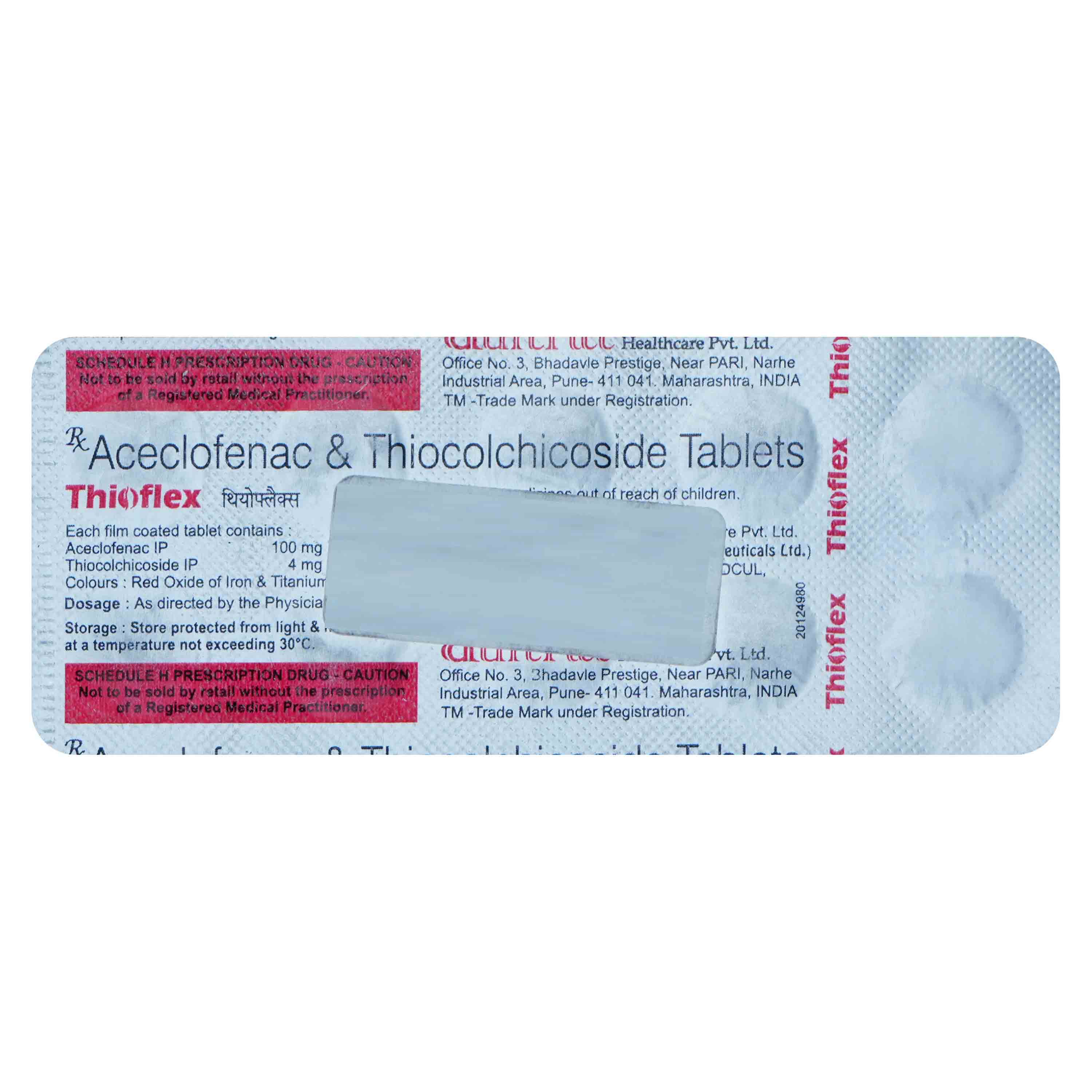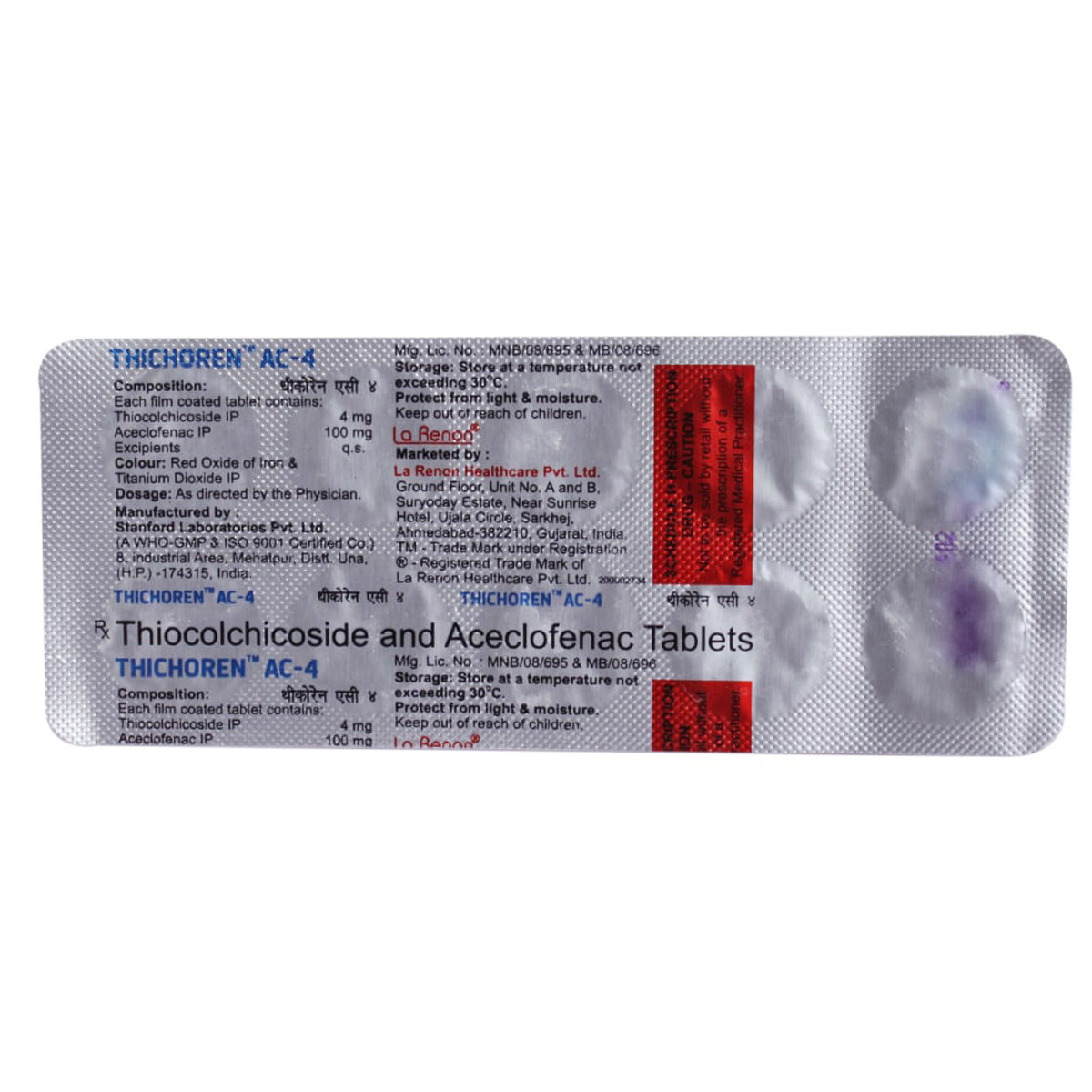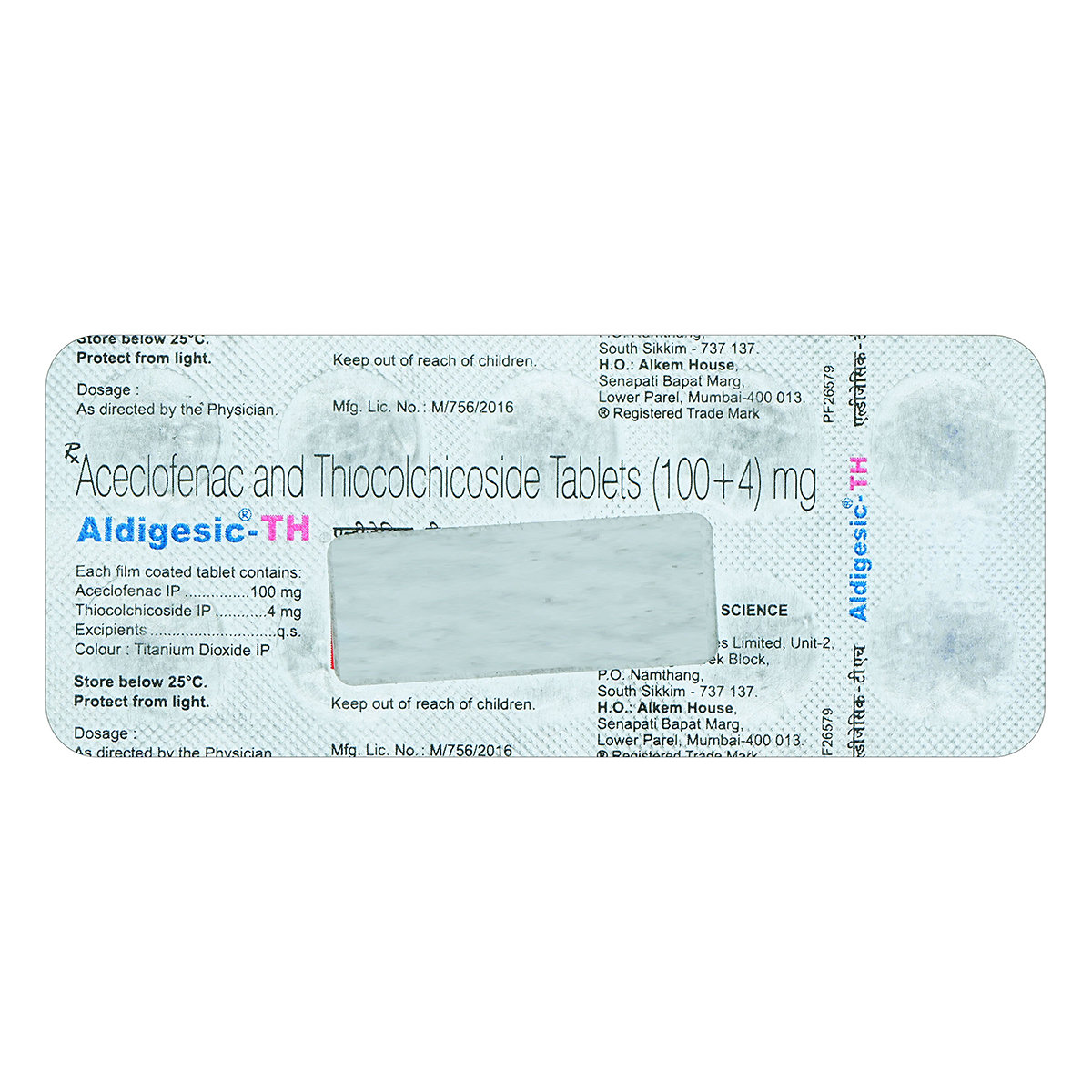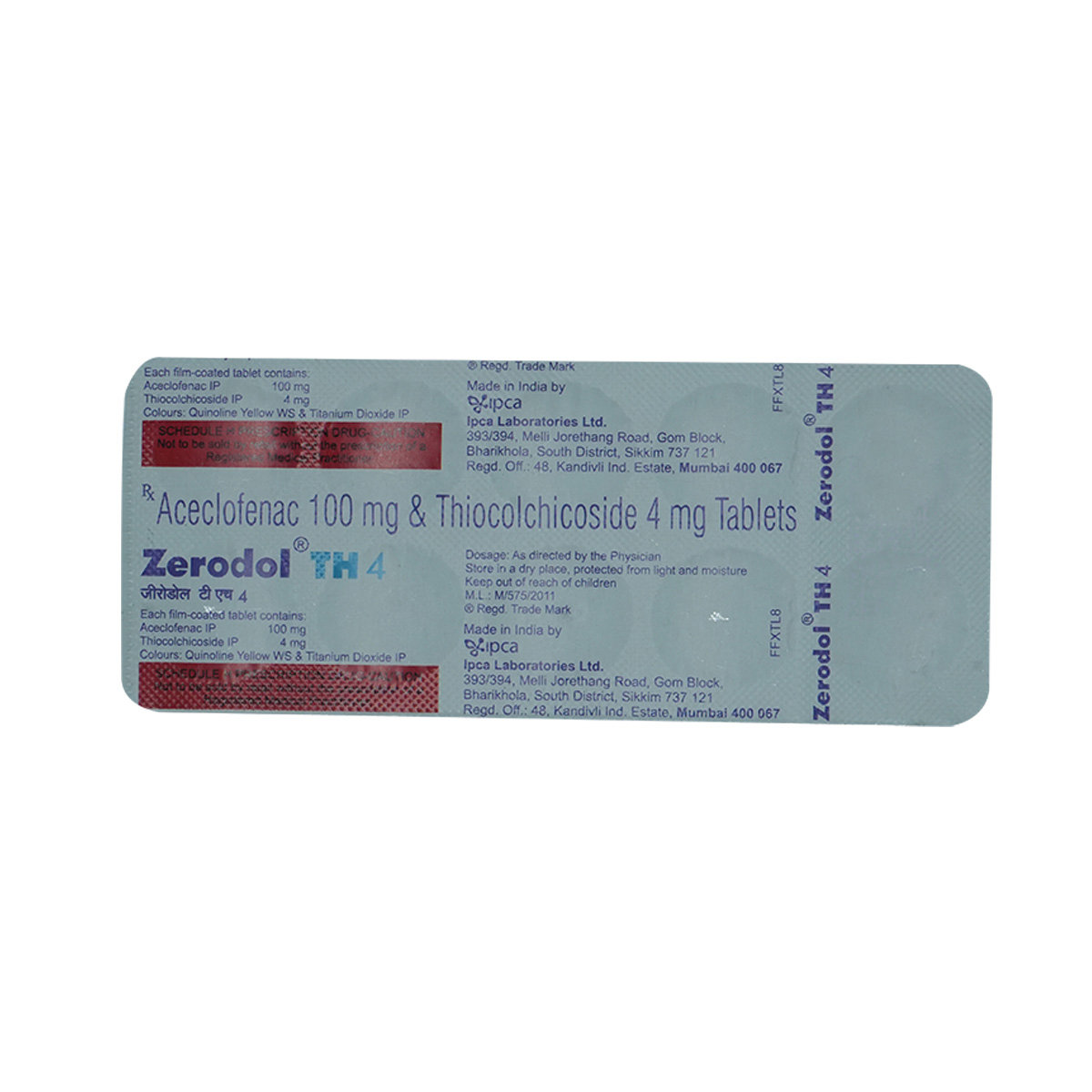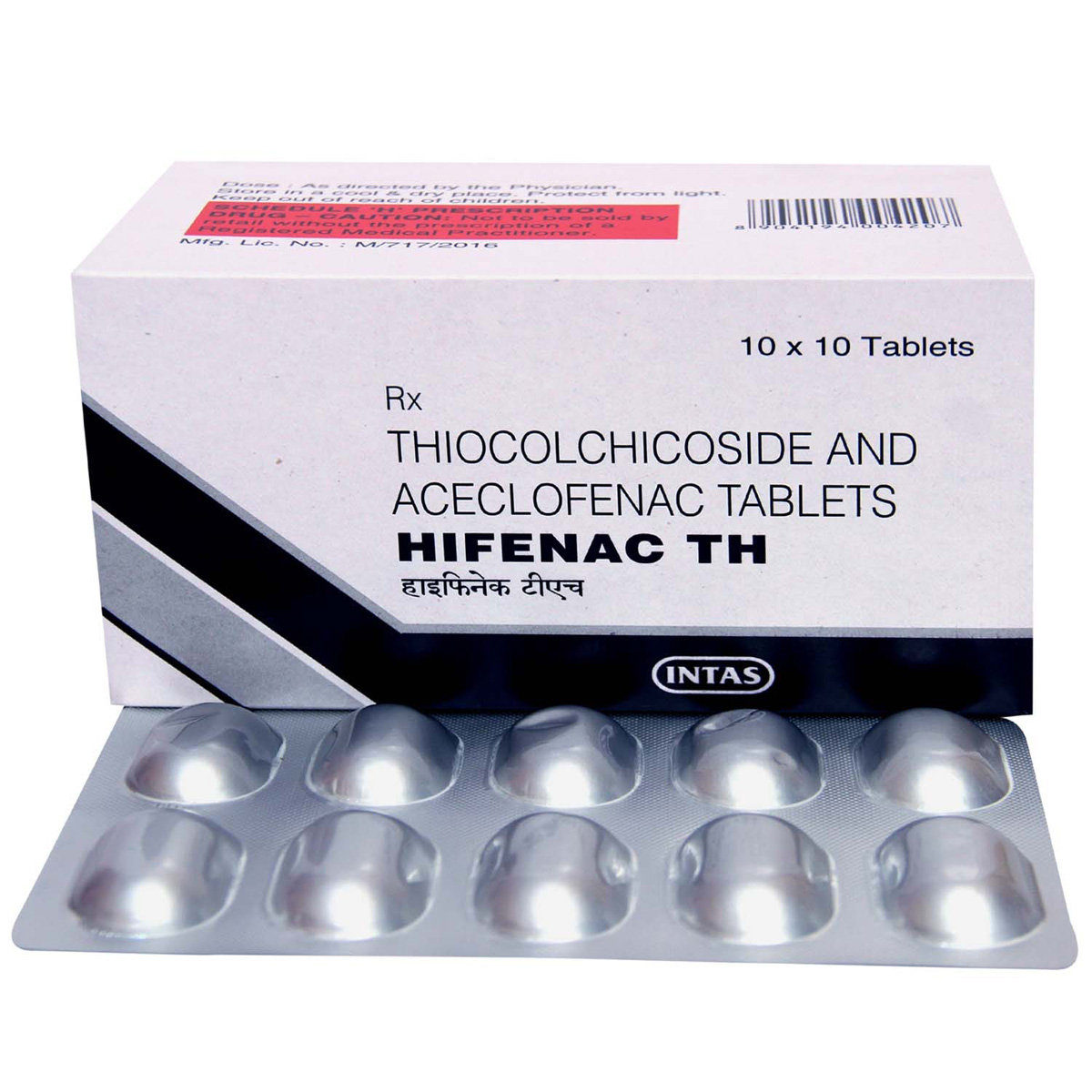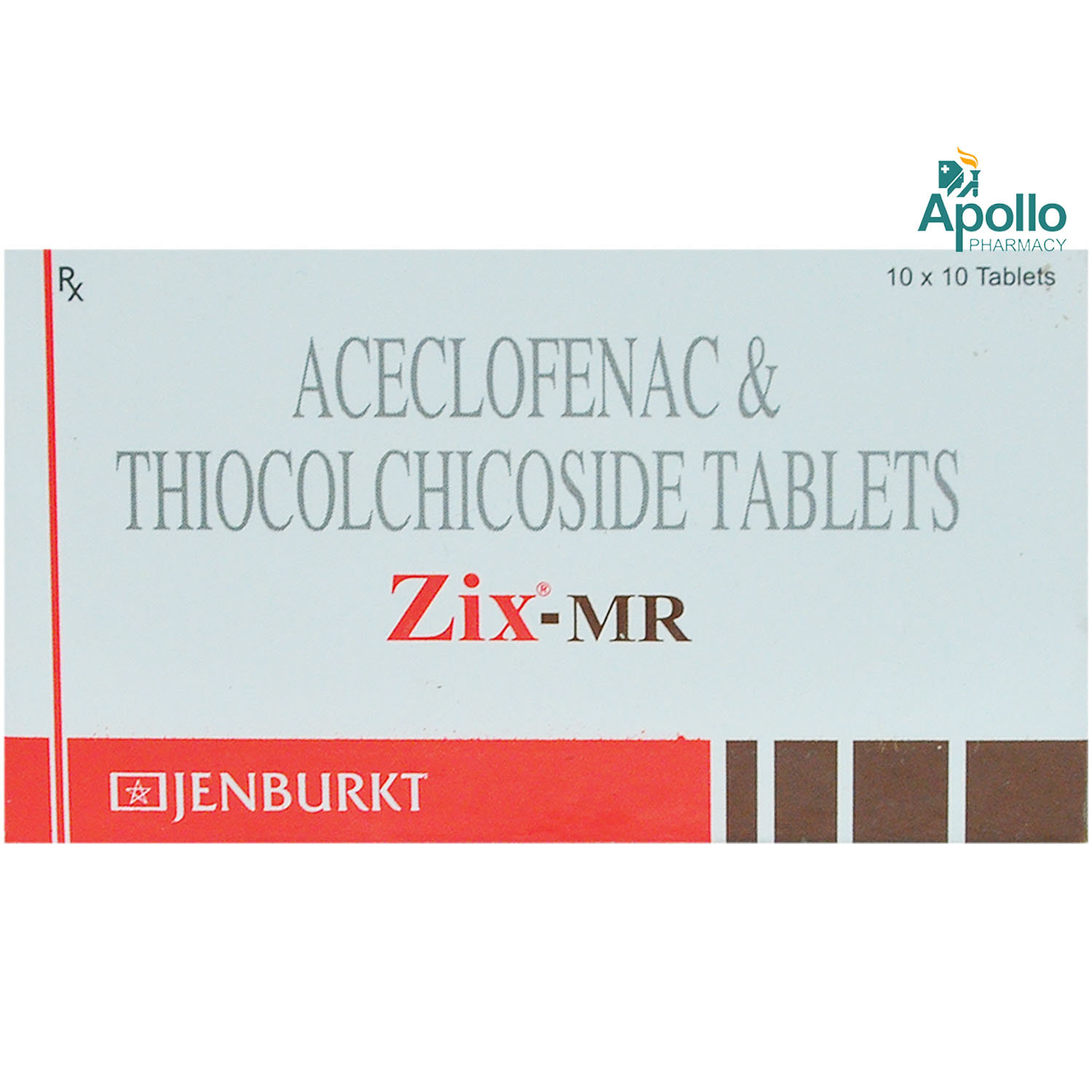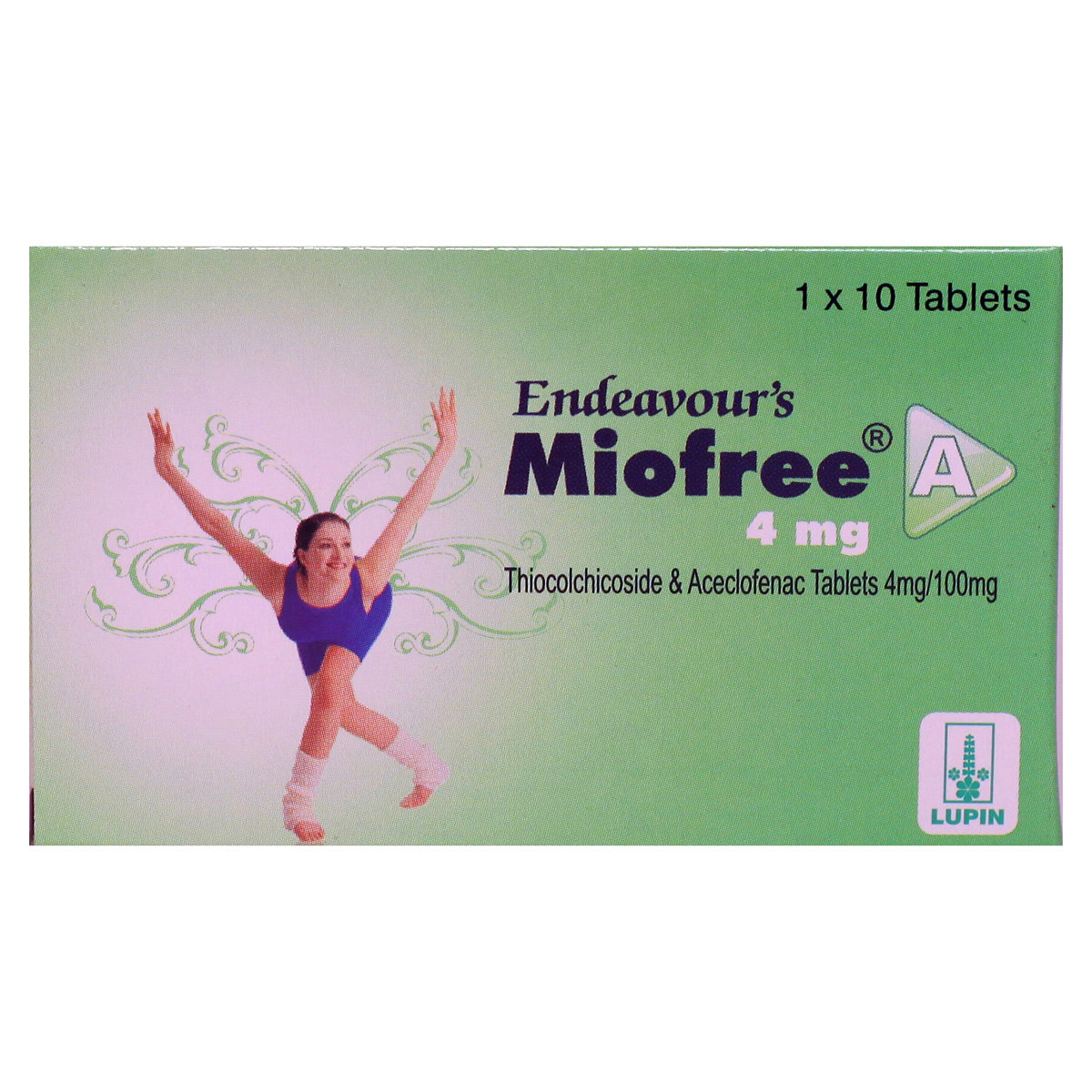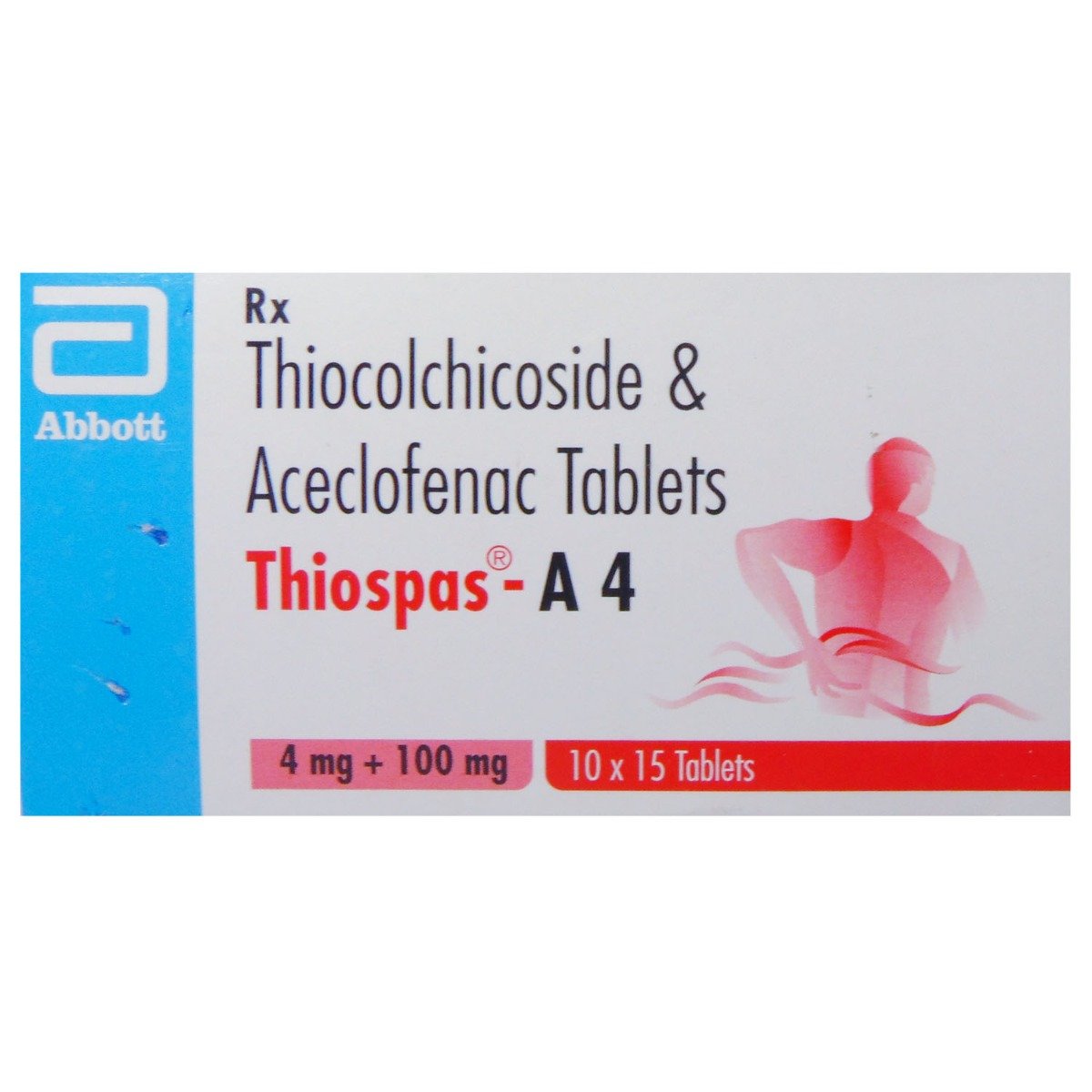- Home
- Relifnac 100 mg/4 mg Tablet
Relifnac 100 mg/4 mg Tablet Substitute
Relifnac 100 mg/4 mg Tablet Substitute
Medicine Composition:
ACECLOFENAC-100MG+THIOCOLCHICOSIDE-4MGAll Substitutes & Brand Comparisons
RX
Numol MR 4 Tablet 10's
Karnataka Antibiotics & Pharmaceuticals Ltd
₹134
(₹12.06 per unit)
48% CHEAPERRX
Thiorex-4mg Tablet 10's
Medilab India
₹185.5
(₹16.7 per unit)
29% CHEAPERRX
Myogill TH 4 Tablet 10's
Calgill Pharma Pvt Ltd
₹186.5
(₹16.79 per unit)
28% CHEAPERRX
Neorelax A 4 mg Tablet 10's
Meyer Organics Pvt Ltd
₹190
(₹17.11 per unit)
27% CHEAPERRX
Osteonec TH 4 Tablet 10's
Startos Healthcare Pvt Ltd
₹194.5
(₹17.51 per unit)
25% CHEAPERRX
Thioblis A-4 Tablet 10's
Alniche Life Sciences Pvt Ltd
₹195.5
(₹17.6 per unit)
25% CHEAPERRX
Thioflex Tablet 10's
Auftritt Healthcare Pvt Ltd
₹213.5
(₹19.22 per unit)
18% CHEAPERRX
THICHOREN AC 4MG TABLET 10'S
La Renon Healthcare Pvt Ltd
₹224
(₹20.16 per unit)
14% CHEAPER- Apollo-Trusted
RX
Aldigesic-TH Tablet 10's
Alkem Laboratories Ltd
₹271.5
(₹20.36 per unit)
13% CHEAPER RX
Thiotrust-4 Tablet 10's
Polaire Pharmaceuticals
₹234
(₹21.06 per unit)
10% CHEAPERRX
Zerodol TH 4 Tablet 10's
Ipca Laboratories Ltd
₹251
(₹22.59 per unit)
4% CHEAPERRX
Hifenac TH Tablet 10's
Intas Pharmaceuticals Ltd
₹251
(₹22.59 per unit)
4% CHEAPERRX
Zix-MR Tablet 10's
Jenburkt Pharmaceuticals Ltd
₹260
(₹23.4 per unit)
RX
Miofree A 4 mg Tablet 10's
Lupin Ltd
₹292
(₹26.28 per unit)
11% COSTLIERRX
Thiospas-A 4 Tablet 15's
Abbott India Ltd
₹460.5
(₹27.63 per unit)
17% COSTLIER

When Should You Consider Switching from Relifnac 100 mg/4 mg Tablet ?
Patients may explore substitutes in the following scenarios:
- High monthly cost of Relifnac 100 mg/4 mg Tablet
- Non-availability in local pharmacies
- Generic recommendation by a doctor
- Side effects or better tolerability with alternatives
What to Know Before Switching
Before you switch from Relifnac 100 mg/4 mg Tablet to another medicine, here are some important points to keep in mind:
Same salt, different brands:
Most substitutes contain the same active ingredient - ACECLOFENAC-100MG+THIOCOLCHICOSIDE-4MG, but the fillers, coating, or manufacturing quality may vary slightly.
Consult your doctor first:
Even if the salt is the same, your doctor can confirm if the substitute is right for your condition, dosage, and health history.
Watch out for allergies or reactions:
Some people may react differently to certain brands due to inactive ingredients. If you notice any side effects, inform your doctor immediately.
Price ≠ effectiveness:
A lower-priced substitute doesn't mean it's less effective. Many generic medicines work just as well as branded ones.
Check the dosage form and strength:
Always match the substitute’s strength (e.g., 5mg, 10mg) and form (tablet, capsule, syrup) with what your doctor prescribed.
Uses
Relifnac 100 mg/4 mg Tablet is used in the treatment of pain due to muscle spasms. The detailed uses of Relifnac 100 mg/4 mg Tablet are as:
- Pain relief: Relifnac 100 mg/4 mg Tablet acts as a muscle relaxant that helps in providing relief from pain caused by muscle spasms associated with conditions such as degenerative vertebral disorders, vertebral static problems, dorsal pain, low back pain, and torticollis (neck muscle contractions).
- Inflammation reduction: Relifnac 100 mg/4 mg Tablet helps to reduce inflammation in conditions like arthritis, improving mobility, reducing stiffness, and enhancing overall joint function.
- Muscle stiffness: Relifnac 100 mg/4 mg Tablet relieves muscle stiffness, improving mobility and facilitating smoother muscle movements.
- Post-operative care: Relifnac 100 mg/4 mg Tablet is often prescribed for post-operative pain management, helping patients recover more comfortably by reducing pain and inflammation after surgery.
Medicinal Benefits
- Relifnac 100 mg/4 mg Tablet is a combination of two drugs, namely, Thiocolchicoside and Aceclofenac, used to treat pain due to muscle spasms.
- Thiocolchicoside is a muscle relaxant that works on the centres of the spinal cord and brain.
- This helps relieve muscle stiffness and improves muscle movements, thereby relieving pain due to muscle spasms.
- Aceclofenac is a non-steroidal anti-inflammatory drug (pain killer) that works by blocking the action of the cyclo-oxygenase (COX) enzyme in the body that is involved in the production of certain chemical substances, such as prostaglandins, that cause pain and swelling.
FAQs
The substitutes of Relifnac 100 mg/4 mg Tablet contain the same active salt(s) - ACECLOFENAC-100MG+THIOCOLCHICOSIDE-4MG. However, they may differ in price, manufacturing quality, and inactive ingredients. Speak to your doctor to find a suitable option.
Switching to a generic substitute medicine in the place of Relifnac 100 mg/4 mg Tablet is often possible if it has the same salt, strength, and dosage form. But always check with your doctor before making any changes to your medication.
Generics versions of Relifnac 100 mg/4 mg Tablet are typically more affordable because they don’t include the original brand's research, development, and marketing costs. They contain the same active ingredient and are approved for safety and effectiveness.
Most people don’t notice any difference. However, some may react to different fillers or coatings. If you notice any unusual symptoms after switching, consult your doctor.
Make sure the new medicine has the same active salt, strength, dosage form. Always confirm the change with your doctor or pharmacist.
Substitutes of Relifnac 100 mg/4 mg Tablet meet the same safety and efficacy standards as Relifnac 100 mg/4 mg Tablet , but small differences in absorption or formulation can exist. A doctor can help you choose the right one for your needs.
Yes. Substitutes of Relifnac 100 mg/4 mg Tablet may vary in color, size, or shape due to differences in manufacturing and branding, but this does not affect how they work.
Yes, it’s generally safe to switch between multiple substitutes of Relifnac 100 mg/4 mg Tablet if they have the same salt and strength. However, always inform your doctor so they can monitor how your body responds.
Yes, many people safely use substitutes of Relifnac 100 mg/4 mg Tablet for long-term treatment. Just ensure it’s done under medical supervision.
If your symptoms stay under control or lab results remain stable, the substitute for Relifnac 100 mg/4 mg Tablet is likely working well. Regular follow-ups with your doctor are important.
Absolutely. Even with the same salt, small differences can affect how your body responds when switching from Relifnac 100 mg/4 mg Tablet to its substitute. Always consult your doctor before switching.
Relifnac 100 mg/4 mg Tablet is used to reduce and relieve pain due to muscle spasms (painful muscular contractions) associated with degenerative vertebral disorders, vertebral static problems, dorsal pain, low back pain, and torticollis (neck muscle contractions).
Relifnac 100 mg/4 mg Tablet contains Thiocolchicoside and Aceclofenac. Thiocolchicoside is a muscle relaxant that works on the centres of the spinal cord and brain. This helps relieve muscle stiffness and improves muscle movements, thereby relieving pain due to muscle spasms. Aceclofenac is a non-steroidal anti-inflammatory drug (pain killer) that works by blocking the action of the cyclo-oxygenase (COX) enzyme in the body, which is involved in producing certain chemical substances, such as prostaglandins, that cause pain and swelling.
Relifnac 100 mg/4 mg Tablet may affect sperm cells and thereby cause problems with male fertility. Therefore, please consult your doctor before taking Relifnac 100 mg/4 mg Tablet if you are planning to become a father.
Relifnac 100 mg/4 mg Tablet may cause diarrhoea as a side effect. It is not necessary for everyone taking Relifnac 100 mg/4 mg Tablet to experience this side effect. However, if the condition persists or worsens, please consult a doctor.
You are not recommended to take Relifnac 100 mg/4 mg Tablet with warfarin as co-administration of these two medicines may increase the bleeding risk more easily. However, if you are supposed to use these medicines together, you are advised to contact your doctor so that the dose may be adjusted appropriately for safe use.
Relifnac 100 mg/4 mg Tablet may trigger fits, especially in patients at risk or those already suffering from them. Therefore, please inform your doctor if you have a history of fits before taking Relifnac 100 mg/4 mg Tablet .
You are recommended to use Relifnac 100 mg/4 mg Tablet for as long as your doctor has prescribed it. However, if the symptoms persist even after using Relifnac 100 mg/4 mg Tablet for 7 days, stop taking Relifnac 100 mg/4 mg Tablet and consult a doctor.
Avoid taking Relifnac 100 mg/4 mg Tablet if you are allergic to it. Inform your doctor if you have a history of stomach ulcers, heart disease, high blood pressure, bleeding disorders, liver or kidney problems. Consult your doctor before using Relifnac 100 mg/4 mg Tablet if you are pregnant or breastfeeding and it best to avoid alcohol while taking Relifnac 100 mg/4 mg Tablet as it can increase the risk of stomach ulcers and bleeding.
No, Relifnac 100 mg/4 mg Tablet is not addictive. However, it's important to use it only as prescribed by your doctor.
Relifnac 100 mg/4 mg Tablet is generally used for short-term and can be stopped when the pain is relieved. However, it should be used for the duration as advised by your doctor.
Yes, some people may experience dizziness (feeling weak, faint, unsteady, or lightheaded) after taking Relifnac 100 mg/4 mg Tablet . It is best to take a short break and restart once you feel better if you are experiencing light-headedness or dizziness. However, consult your doctor if your condition persists or worsens.
The use of Relifnac 100 mg/4 mg Tablet may be harmful to patients with known allergies to painkillers or components of this medicine. It should also be avoided in individuals with a history of stomach ulcers, heart failure, high blood pressure, liver disease, and kidney problems. Therefore, if you have any medical conditions, inform your doctor before taking Relifnac 100 mg/4 mg Tablet .
Yes, Relifnac 100 mg/4 mg Tablet can be taken with Vitamin B-complex. Vitamin B-complex helps to treat vitamin deficiency, which may be the cause of your symptoms. However, please consult your doctor before taking Relifnac 100 mg/4 mg Tablet with other medicines or supplements.
Long-term use of Relifnac 100 mg/4 mg Tablet can cause kidney damage due to the reduction in prostaglandins, which normally protect the kidneys. It's important to monitor kidney function regularly and consult your doctor if you have any concerns or pre-existing kidney conditions.
No, taking more than the recommended dose will not improve its effectiveness but may lead to increased side effects. Consult your doctor if you think you have taken more doses of Relifnac 100 mg/4 mg Tablet or experience worsening symptoms while taking Relifnac 100 mg/4 mg Tablet .
Take Relifnac 100 mg/4 mg Tablet in the dose and duration as advised by your doctor. Swallow it as a whole. Do not chew, crush or break it. Relifnac 100 mg/4 mg Tablet is to be taken with food.
You are recommended to consult your doctor before taking other medicines with Relifnac 100 mg/4 mg Tablet to avoid potential drug interactions. Some medications that may interact with Relifnac 100 mg/4 mg Tablet include anti-hypertensives, antidiabetic medications, and antidepressants. These interactions can affect the effectiveness of the medications or increase the risk of side effects. Therefore, it is important to inform your doctor about all the medications you are taking, including over-the-counter drugs and supplements, to ensure safe and effective treatment.
If you suspect an overdose of Relifnac 100 mg/4 mg Tablet , it is crucial to seek immediate medical attention. Symptoms of an overdose may include nausea, seizures (fits) and drowsiness. If you experience any of these symptoms, consult your doctor.
The side effects of Relifnac 100 mg/4 mg Tablet are diarrhoea, dizziness, nausea, vomiting, stomach pain and increased liver enzymes in the blood. If these persist or worsen, consult your doctor.
Buy best C.n.s Drugs products by
Intas Pharmaceuticals Ltd
Sun Pharmaceutical Industries Ltd
Torrent Pharmaceuticals Ltd
Alkem Laboratories Ltd
Alteus Biogenics Pvt Ltd
Abbott India Ltd
Cipla Ltd
Micro Labs Ltd
Lupin Ltd
Tripada Healthcare Pvt Ltd
D D Pharmaceuticals Pvt Ltd
Ipca Laboratories Ltd
Arinna Lifesciences Ltd
Icon Life Sciences
Linux Laboratories Pvt Ltd
Mankind Pharma Pvt Ltd
Cnx Health Care Pvt Ltd
East West Pharma India Pvt Ltd
La Renon Healthcare Pvt Ltd
Emcure Pharmaceuticals Ltd
Eris Life Sciences Ltd
Leeford Healthcare Ltd
Talent India Pvt Ltd
Consern Pharma Ltd
Tas Med India Pvt Ltd
Macleods Pharmaceuticals Ltd
Dr Reddy's Laboratories Ltd
Zydus Healthcare Ltd
Matias Healthcare Pvt Ltd
Jagsam Pharma
Troikaa Pharmaceuticals Ltd
Ikon Pharmaceuticals Pvt Ltd
Sigmund Promedica
Aristo Pharmaceuticals Pvt Ltd
Ardent Life Sciences Pvt Ltd
Shine Pharmaceuticals Ltd
Zydus Cadila
Theo Pharma Pvt Ltd
Wockhardt Ltd
Lifecare Neuro Products Ltd
Propel Healthcare
Crescent Formulations Pvt Ltd
Mesmer Pharmaceuticals
Matteo Health Care Pvt Ltd
Reliance Formulation Pvt Ltd
Ajanta Pharma Ltd
Capital Pharma
Morepen Laboratories Ltd
Neon Laboratories Ltd
Lyf Healthcare
Med Manor Organics Pvt Ltd
Msn Laboratories Pvt Ltd
Akumentis Healthcare Ltd
Sanix Formulation Pvt Ltd
Pulse Pharmaceuticals
Brainwave Healthcare Pvt Ltd
Hetero Healthcare Pvt Ltd
Cyrus Remedies Pvt Ltd
Sanofi India Ltd
Solvate Laboratories Pvt Ltd
Elder Pharmaceuticals Ltd
Novartis India Ltd
Psyco Remedies Ltd
Alniche Life Sciences Pvt Ltd
Medishri Healthcare Pvt Ltd
Quince Lifesciences Pvt Ltd
Crescent Therapeutics Ltd
Hbc Life Sciences Pvt Ltd
Mova Pharmaceutical Pvt Ltd
Prevego Healthcare & Research Pvt Ltd
Cadila Healthcare Ltd
Tripada Lifecare Pvt Ltd
Alembic Pharmaceuticals Ltd
Kivi Labs Ltd
Solis Pharmaceuticals
Talin Remedies Pvt Ltd
Infivis Life Care
Serotonin Pharmaceuticals Llp
Glenmark Pharmaceuticals Ltd
Aareen Healthcare Pvt Ltd
Primus Remedies Pvt Ltd
Trion Pharma India Llp
A N Pharmacia Laboratories Pvt Ltd
Cadila Pharmaceuticals Ltd
Gagnant Healthcare Pvt Ltd
Vasu Organics Pvt Ltd
Wallace Pharmaceuticals Pvt Ltd
Crescent Pharmaceuticals
Divine Savior Pvt Ltd
Glarizonto Pharma Pvt Ltd
Knoll Healthcare Pvt Ltd
Lia Life Sciences Pvt Ltd
Lyceum Life Sciences Pvt Ltd
Maneesh Pharmaceuticals Ltd
Suraksha Pharma Pvt Ltd
Zuventus Healthcare Ltd
Arches Pharmaceuticals
Dycine Pharmaceuticals
Lincoln Pharmaceuticals Ltd
Pfizer Ltd

